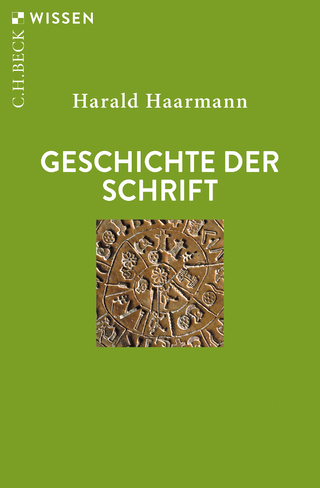
Re-using Manuscripts in Late Medieval England
Repairing, Recycling, Sharing
Seiten
2024
York Medieval Press (Verlag)
978-1-914049-22-4 (ISBN)
York Medieval Press (Verlag)
978-1-914049-22-4 (ISBN)
Explores the practices and processes by which manuscripts were crafted, mended, protected, marked, gifted and shared.
During the "long fifteenth century" (here, 1375-1530), the demand for books in England flourished. The fast-developing book trade produced them in great quantity. Fragments of manuscripts were often repurposed, as flyleaves and other components such as palimpsests; and alongside the creation of new books, medieval manuscripts were also repaired, recycled and re-used.
This monograph examines the ways in which people sustained older books, exploring the practices and processes by which manuscripts were crafted, mended, protected, marked, gifted and shared. Drawing on the codicological evidence gathered from an extensive survey of extant manuscript collections, in conjunction with historical accounts, recipes and literary texts, it presents detailed case studies exploring parchment production and recycling, the re-use of margins, and second-hand exchanges of books. Its engagement with the evidence in - and inscribed on - surviving books enables a fresh appraisal of late medieval manuscript culture in England, looking at how people went about re-using books, and arguing that over the course of this period, books were made, used and re-used in a myriad of sustainable ways.
During the "long fifteenth century" (here, 1375-1530), the demand for books in England flourished. The fast-developing book trade produced them in great quantity. Fragments of manuscripts were often repurposed, as flyleaves and other components such as palimpsests; and alongside the creation of new books, medieval manuscripts were also repaired, recycled and re-used.
This monograph examines the ways in which people sustained older books, exploring the practices and processes by which manuscripts were crafted, mended, protected, marked, gifted and shared. Drawing on the codicological evidence gathered from an extensive survey of extant manuscript collections, in conjunction with historical accounts, recipes and literary texts, it presents detailed case studies exploring parchment production and recycling, the re-use of margins, and second-hand exchanges of books. Its engagement with the evidence in - and inscribed on - surviving books enables a fresh appraisal of late medieval manuscript culture in England, looking at how people went about re-using books, and arguing that over the course of this period, books were made, used and re-used in a myriad of sustainable ways.
HANNAH RYLEY is Lecturer in Early Medieval English at Balliol College, Oxford; she also teaches for the Faculty of English at the University of Oxford.
List of Illustrations
Acknowledgements
List of Abbreviations
Transcription Conventions
Introduction
1. Making Parchment for Books
2. Re-using Parchment in Books
3. Making Marks on Books
4. Second-hand Books
Conclusions
Bibliography
Index
| Erscheinungsdatum | 19.03.2024 |
|---|---|
| Reihe/Serie | York Manuscript and Early Print Studies |
| Zusatzinfo | 8 colour, 11 b/w, 1 line illus. |
| Verlagsort | York |
| Sprache | englisch |
| Maße | 170 x 240 mm |
| Gewicht | 408 g |
| Themenwelt | Geisteswissenschaften ► Geschichte ► Allgemeine Geschichte |
| Geschichte ► Hilfswissenschaften ► Paläografie | |
| Geisteswissenschaften ► Sprach- / Literaturwissenschaft ► Anglistik / Amerikanistik | |
| Geisteswissenschaften ► Sprach- / Literaturwissenschaft ► Literaturwissenschaft | |
| Geisteswissenschaften ► Sprach- / Literaturwissenschaft ► Sprachwissenschaft | |
| ISBN-10 | 1-914049-22-5 / 1914049225 |
| ISBN-13 | 978-1-914049-22-4 / 9781914049224 |
| Zustand | Neuware |
| Informationen gemäß Produktsicherheitsverordnung (GPSR) | |
| Haben Sie eine Frage zum Produkt? |
Mehr entdecken
aus dem Bereich
aus dem Bereich
Schnelle Hilfe bei häufigen Fehlern
Buch | Softcover (2021)
UTB (Verlag)
18,00 €
Ein Verzeichnis vereidigter Personen aus dem Norden des „regnum …
Buch | Hardcover (2024)
De Gruyter (Verlag)
119,95 €


